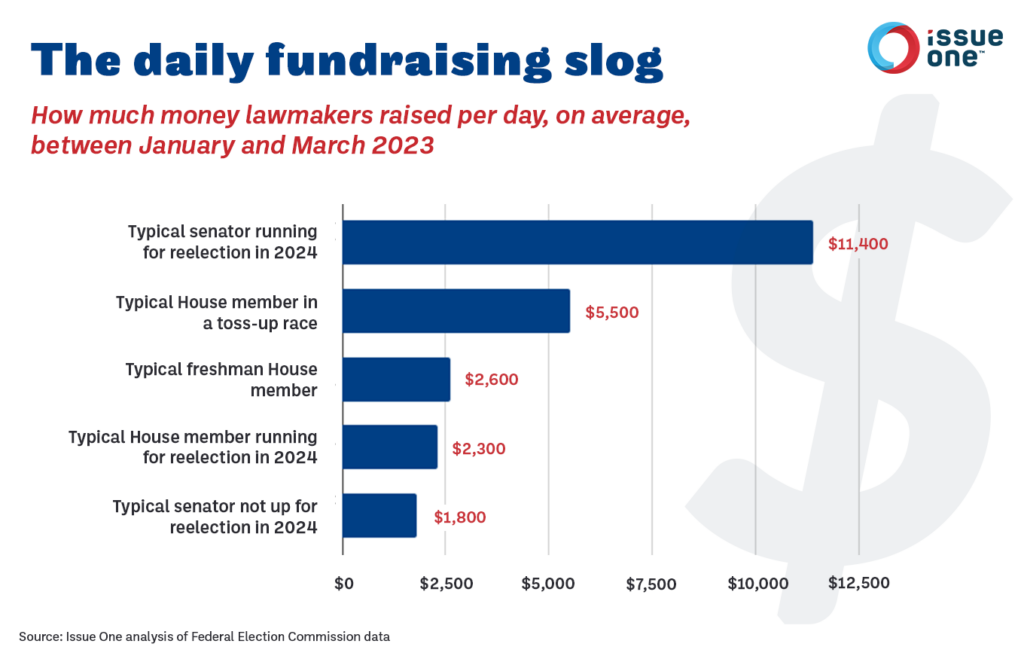
Recently filed campaign finance reports help illustrate how raising campaign cash has essentially become a second full-time job for most members of Congress — especially those in competitive reelection races. But this nonstop fundraising treadmill comes at a steep cost.
“Politicians are elected to be public servants, not telemarketers,” said Issue One Founder and CEO Nick Penniman. “Most members of Congress know that hours spent dialing for dollars are hours diverted away from their legislative and oversight responsibilities. I’ve heard from many that they even feel trapped in a broken system that prioritizes constant fundraising and rewards amassing enormous political war chests. For Congress to be as responsive as possible to the American people, reforms must be adopted that incentivize policymaking, constituent services, and crosspartisan bridge-building, not just the fundraising treadmill.”
Some members of Congress have backed proposals to reform this broken system that have garnered bipartisan support. For instance, Reps. Mike Gallagher (R-WI) and Dean Phillips (D-MN) introduced a bipartisan bill last year that would prohibit members of Congress from fundraising while Congress is in session.
Even the House Freedom Caucus has warned aspiring House members that “fundraising is all important” and that “every committee assignment comes with a specific fundraising quota attached,” as Issue One detailed in our “Price of Power Revisited” report in February.
For now, lawmakers remain under intense pressure to raise money, each and every day.
Here are nine key numbers to know about congressional fundraising during the first three months of the current 118th Congress, based on an Issue One review of recently filed campaign finance reports that cover lawmakers’ fundraising between January 1 and March 31, 2023.
$132 million: Total amount of campaign cash that all House members running for reelection in 2024 combined to raise during the first quarter of 2023.
$205,000: Median amount of money raised by a member of the House of Representatives up for reelection in 2024 — an average of about $2,300 per day.
$238,000: Median amount of money raised by a freshman member of the 118th Congress — an average of about $2,600 per day.
$492,000: Median amount of money raised during the first quarter of 2023 by a House incumbent running for reelection in 2024 in a race rated as a toss-up by the Cook Political Report — an average of about $5,500 per day, or more than twice as much as the typical House member.
$57 million: Total amount of campaign cash that all incumbent senators combined to raise between January 1 and March 31, 2023.
$1 million: Median amount of money raised by a sitting senator running for reelection in 2024 — an average of about $11,400 per day. That’s more than six times as much money as their colleagues who are not facing reelection next year.
$166,000: Median amount of money raised during the first quarter of 2023 by senators who were not up for reelection in 2024 — an average of about $1,800 per day.
91%: Portion of members of the 118th Congress who have a leadership PAC, a type of political action committee operated in addition to lawmakers’ official campaign committees that are often criticized by liberals and conservatives alike as slush funds that raise most of their money from special interests.
64%: Portion of the 74 freshman House members who have already formed leadership PACs.
Ariana Rojas contributed to this report.



